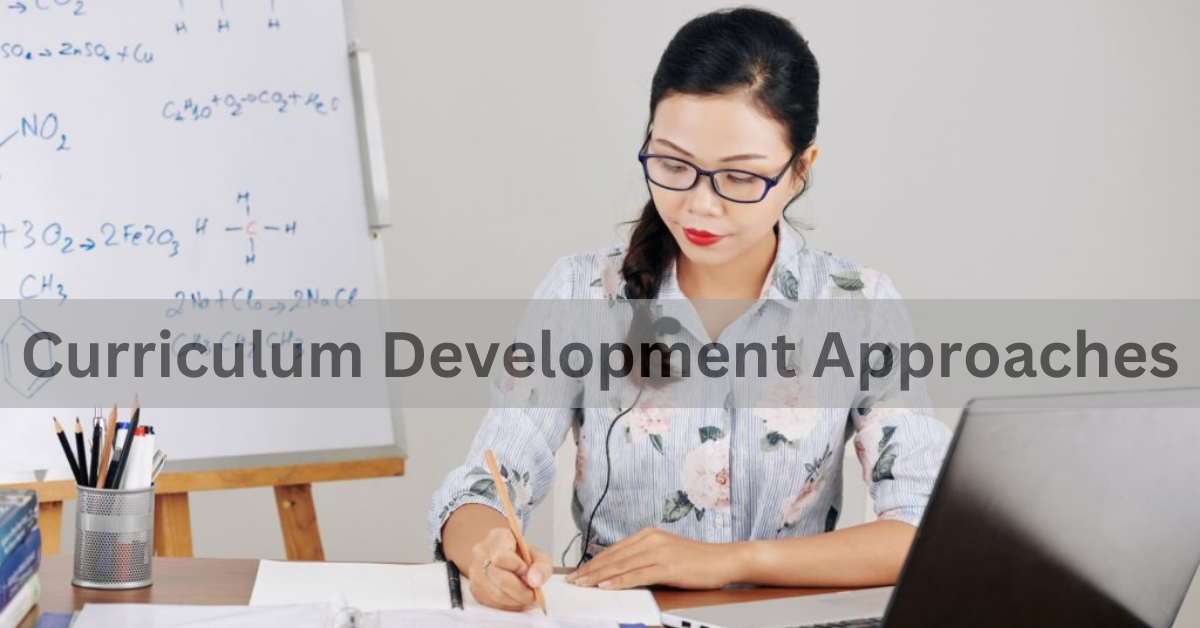Curriculum development is a crucial aspect of educational planning and involves the systematic design and structuring of educational experiences. Different approaches to curriculum development exist, each with its own philosophy and methodology. In this article, we delve into various curriculum development approaches, exploring their definitions, key principles, and practical applications in educational settings.
1. Subject-Centered Approach
The subject-centered approach to curriculum development revolves around organizing the curriculum around specific subjects or disciplines. It emphasizes content mastery and typically follows a traditional academic structure. Subjects are often taught in isolation, with clear learning objectives and assessments tailored to each subject area. This approach aims to ensure depth of knowledge within each discipline.
Key Features:
- Disciplinary Focus: Emphasizes mastery of specific subjects such as mathematics, science, or language arts.
- Structured Learning: Organizes content hierarchically, often following textbook or syllabus outlines.
- Subject Experts: Relies on subject matter experts to design and deliver curriculum content.
Application: Commonly used in formal education systems where standardized testing and subject-specific qualifications are prioritized.
2. Learner-Centered Approach
The learner-centered approach places the individual student at the center of the curriculum development process. It focuses on the needs, interests, and abilities of learners, aiming to make education more personalized and meaningful. This approach values student autonomy and encourages active participation in learning experiences.
Key Features:
- Personalized Learning: Tailors curriculum content and activities to individual learner needs and interests.
- Active Engagement: Promotes interactive and collaborative learning environments.
- Skill Development: Emphasizes critical thinking, problem-solving, and lifelong learning skills.
Application: Often found in progressive educational settings and models such as Montessori, where learning is seen as a holistic and developmental process.
3. Problem-Centered Approach
The problem-centered approach integrates real-world problems and issues into the curriculum to foster critical thinking and practical application of knowledge. It encourages students to explore and solve complex problems, developing skills that are relevant beyond the classroom.
Key Features:
- Real-World Relevance: Incorporates authentic problems that students might encounter in their lives or careers.
- Interdisciplinary Learning: Encourages integration of knowledge and skills from multiple subject areas.
- Experiential Learning: Emphasizes hands-on activities, fieldwork, and project-based learning.
Application: Commonly used in STEM (Science, Technology, Engineering, and Mathematics) education and vocational training programs where practical skills are paramount.
4. Social Reconstructionist Approach
The social reconstructionist approach views education as a tool for societal change and aims to empower students to critically analyze and challenge existing social structures and norms. It emphasizes equity, social justice, and the development of active citizenship.
Key Features:
- Critical Consciousness: Encourages students to examine and question social inequalities and injustices.
- Advocacy and Action: Promotes civic engagement, advocacy, and community involvement.
- Global Perspectives: Considers global issues and interconnectedness in curriculum design.
Application: Often found in educational contexts focusing on social studies, civics, and humanities where fostering democratic values and civic responsibility is essential.
Conclusion
Curriculum development approaches vary widely, each reflecting different educational philosophies and goals. By understanding these approaches—whether subject-centered, learner-centered, problem-centered, or social reconstructionist—educators can make informed decisions about how to design and implement curricula that meet the diverse needs of learners and prepare them for success in an evolving world.
In conclusion, the choice of curriculum development approach should align with educational objectives, student demographics, and broader societal goals to ensure meaningful and effective learning experiences. As education continues to evolve, so too must our approaches to curriculum development, adapting to new challenges and opportunities in the pursuit of educational excellence.

